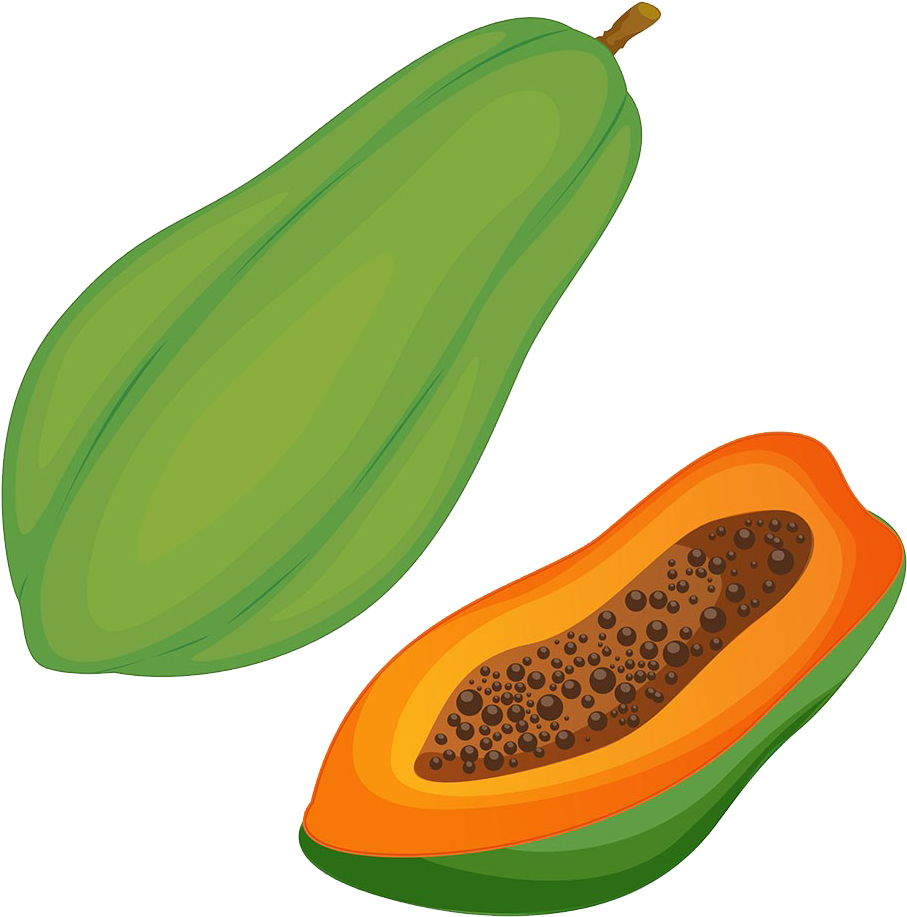
This image has format transparent PNG with resolution 907x917.
You can download this image in best resolution from this page and use it for design and web design.
Papaya PNG with transparent background you can download for free, just click on download button.
The papaya (/pəˈpaɪə/, US: /pəˈpɑːjə/) (from Carib via Spanish), papaw, (/pəˈpɔː/) or pawpaw (/ˈpɔːpɔː/) is the plant Carica papaya, one of the 22 accepted species in the genus Carica of the family Caricaceae. It was first domesticated in Mesoamerica, within modern-day southern Mexico and Central America. In 2020, India produced 43% of the world supply of papayas.
The papaya is a small, sparsely branched tree, usually with a single stem growing from 5 to 10 m (16 to 33 ft) tall, with spirally arranged leaves confined to the top of the trunk. The lower trunk is conspicuously scarred where leaves and fruit were borne. The leaves are large, 50–70 cm (20–28 in) in diameter, deeply palmately lobed, with seven lobes. All parts of the plant contain latex in articulated laticifers. Papayas are dioecious. The flowers are five-parted and highly dimorphic; the male flowers have the stamens fused to the petals. The female flowers have a superior ovary and five contorted petals loosely connected at the base. Male and female flowers are borne in the leaf axils, and the males are multiflowered dichasia, and the female flowers are in few-flowered dichasia. The pollen grains are elongated and approximately 35 microns in length. The flowers are sweet-scented, open at night, and wind- or insect-pollinated.
The fruit is a large berry about 15–45 cm (5.9–17.7 in) long and 10–30 cm (3.9–11.8 in) in diameter. It is ripe when it feels soft (as soft as a ripe avocado or softer), its skin has attained an amber to orange hue and along the walls of the large central cavity are attached numerous black seeds.
Two kinds of papayas are commonly grown. One has sweet, red or orange flesh, and the other has yellow flesh; in Australia, these are called "red papaya" and "yellow papaw", respectively. Either kind, picked green, is called a "green papaya".
The large-fruited, red-fleshed 'Maradol', 'Sunrise', and 'Caribbean Red' papayas often sold in U.S. markets are commonly grown in Mexico and Belize.
In 2011, Philippine researchers reported that by hybridizing papaya with Vasconcellea quercifolia, they had developed papaya resistant to papaya ringspot virus (PRV).
In 2020, global production of papayas was 13.9 million tonnes, led by India with 43% of the world total (table). Global papaya production grew significantly over the early 21st century, mainly as a result of increased production in India and demand by the United States. The United States is the largest consumer of papaya worldwide.
In this clipart you can download free PNG images: Papaya PNG images fruit free download